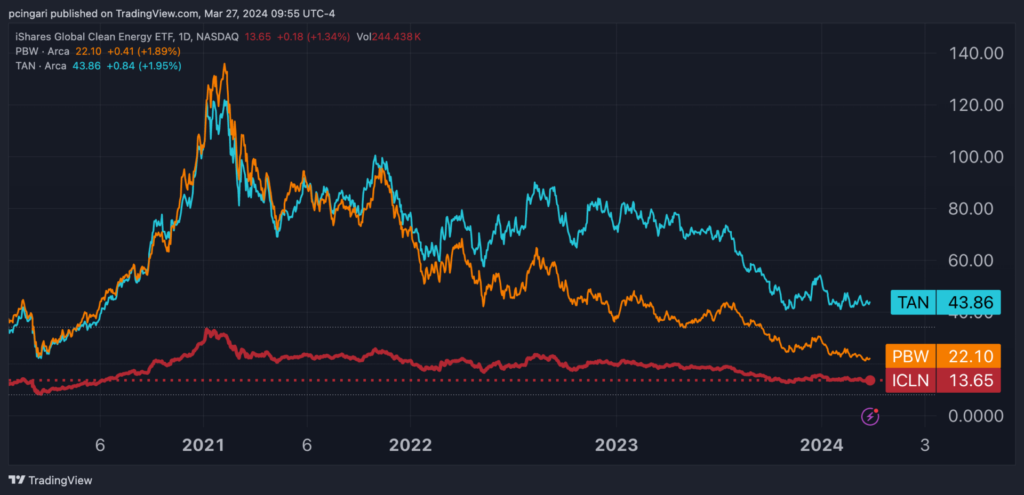Zinger Key Points
- Yellen to address China's green tech export surge, fearing global market distortions, in her upcoming Beijing visit.
- Speech reveals Yellen's concerns over China's export strategy's impact on global supply chains and American jobs.
- How to Spot the Market Bottom: Matt Maley has navigated every major market turn in the last 35 years, and on Wednesday, March 26, at 6 PM ET, he’s revealing how to recognize when the worst is over, the trades to make before the next bull market takes off, and the stocks and sectors that will lead the recovery.
Treasury Secretary Janet L. Yellen is poised to voice concerns about China’s green energy exports in a speech scheduled for Wednesday, March 27.
What Happened: According to the New York Times, which obtained a copy of Yellen’s speech, the Treasury Secretary will address potential market distortions caused by China’s aggressive export strategy, especially in the context of subsidized green technology.
China's overcapacity not only disrupts global prices and production trends, but it also “hurts American firms and workers, as well as firms and workers around the world,” Yellen says.
The backdrop for Yellen’s critical observations is her visit to Norcross, Georgia, where she is showcasing the reopening of a U.S. solar-cell facility, Suniva Inc.
The manufacturing plant was once shuttered due to the influx of cheap imports.
See Also: Best Renewable Energy Stocks
Why It Matters: Yellen says China’s industrial policy has broad implications. Historically, these policies have led to overinvestment in sectors like steel and aluminum, adversely affecting global industries.
A similar pattern may emerge in “new” industries, such as solar energy, electric vehicles (EVs), and lithium-ion batteries — sectors crucial for the green energy transition but now threatened by China’s aggressive expansion.
The performance of U.S. green energy stocks has been rather disappointing over the past years. Invesco Solar ETF TAN is still 66% lower compared to its record highs hit in early 2021. Similarly, the iShares Global Clean Energy ETF ICLN has lost 60% of its value since January 2021.
Chart: Green Energy ETFs Have Been On Sharp Downtrend Since 2021

What’s Next: Yellen is expected to visit China to meet with members of the country's senior leadership in April.
The visit also highlights the Biden administration’s commitment to strengthening the U.S.’s renewable energy industry.
Reviving American companies like Suniva underscore the strategic pivot towards green energy investments, backed by substantial clean power investment announcements exceeding $200 billion since President Joe Biden signed the Inflation Reduction Act in 2022.
Conversely, China’s response to the U.S.’s green energy push includes a recent World Trade Organization complaint, labeling the U.S. EV subsidy policies as discriminatory, especially those affecting vehicles with components manufactured in China and other specified countries.
Now Read: Gold Mining Stocks Eye Best Month In A Year As ‘Golden Era’ For The Precious Metal Looms
Edge Rankings
Price Trend
© 2025 Benzinga.com. Benzinga does not provide investment advice. All rights reserved.
Trade confidently with insights and alerts from analyst ratings, free reports and breaking news that affects the stocks you care about.